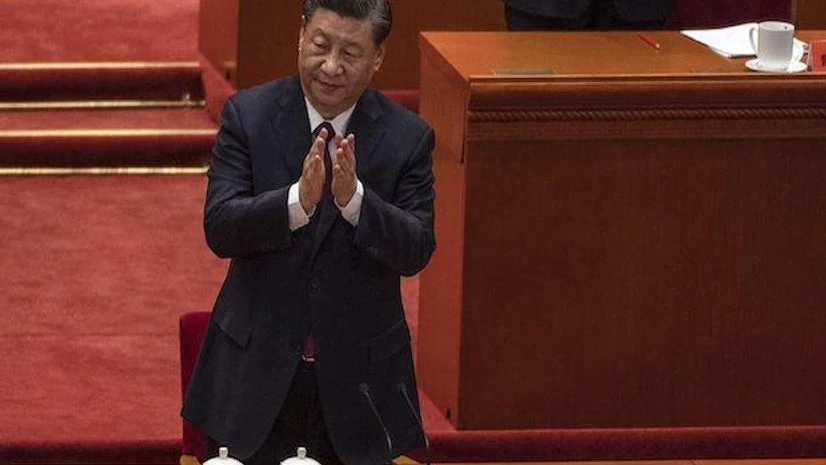Chinese leader Xi Jinping, on a visit this week to the Xinjiang region where his government is widely accused of oppressing predominantly Muslim ethnic minorities, showed no signs of backing off policies that have come under harsh criticism from the US and many European countries.
Xi stressed the full and faithful implementation of his ruling Communist Party's approach in the region, highlighting social stability and lasting security as the overarching goals, the official Xinhua News Agency said Friday.
Under his leadership, authorities have carried out a sweeping crackdown on Xinjiang's Uyghur and Kazakh communities following an outburst of deadly separatist violence. While no exact figure has been released, analysts say hundreds of thousands and likely a million or more people have been detained over time.
Critics have described the crackdown that placed thousands in prison-like indoctrination camps as cultural genocide. The US and others have placed officials responsible under visa bans for their part in extralegal detentions, separation of families and incarcerating people for studying abroad or having foreign contacts.
Xi, on what was described as an "inspection tour" from Tuesday to Friday, said that enhanced efforts should be made to uphold the principle that Islam in China must be Chinese in orientation, Xinhua said.
While the needs of religious believers should be ensured, they should be united closely to the Communist Party and the government, the official news agency quoted him as saying.
He called for educating and guiding people of all ethnic groups to strengthen their identification with the Chinese nation, culture and Communist Party.
More From This Section
The Chinese leader called Xinjiang a "core area and a hub" in China's programme of building ports, railways and power stations connecting it to economies reaching from Central Asia to Eastern Europe. The US has blocked some imports of cotton and other products from the region over reports of forced labour.
Xi met with leaders of the Xinjiang Production and Construction Corps, a supra-governmental body that operates its own courts, schools and health system under a military system imposed on the region after the Communist Party took power in China in 1949.
Xi "learned about the history of the XPCC in cultivating and guarding the frontier areas," Xinhua reported.
Xinjiang borders Russia, Afghanistan and volatile Central Asia, which China has sought to draw within its orbit through economic incentives and security alliances.
(Only the headline and picture of this report may have been reworked by the Business Standard staff; the rest of the content is auto-generated from a syndicated feed.)

)
